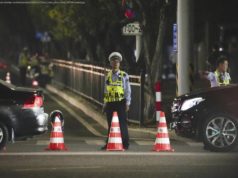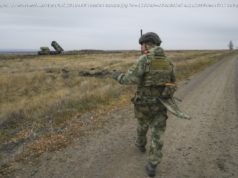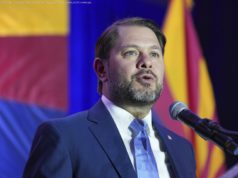The Supreme Court is setting aside a Colorado court ruling against a baker who wouldn’t make a wedding cake for a same-sex couple. But the court is not deciding the big issue in the case, whether a business can refuse to serve gay and lesbian people.
The Supreme Court is setting aside a Colorado court ruling against a baker who wouldn’t make a wedding cake for a same-sex couple. But the court is not deciding the big issue in the case, whether a business can refuse to serve gay and lesbian people. The justices’ limited ruling Monday turns on what the court described as anti-religious bias on the Colorado Civil Rights Commission when it ruled against baker Jack Phillips. The justices voted 7-2 that the Colorado Civil Rights Commission violated Phillips’ rights under the First Amendment. Justice Anthony Kennedy says in his majority opinion that the issue « must await further elaboration. » Appeals in similar cases are pending, including one at the Supreme Court from a florist who didn’t want to provide flowers for a same-sex wedding. Ironically, the rainbow flag was raised outside of San Francisco’s City Hall for Pride Month on the day the Supreme Court ruled against a gay couple who wanted a Colorado baker to create their wedding cake. The decision outraged many city leaders. « We can’t even get a wedding cake. What is this? Seven to two, » said San Francisco Supervisor Jeff Sheehy, referring to the outcome of the Supreme Court vote. Justices Ruth Bader Ginsburg and Sonia Sotomayor dissented. The case involved a gay couple David Mullins and Charlie Craig who asked Colorado baker Jack Phillips to design a cake for their wedding. But, Phillips refused stating that it was against his religious faith. The couple took its complaint to the Colorado Civil Rights Commission which decided that Phillips discriminated against them. But, led by Justice Anthony Kennedy, the other six justices agreed that from the beginning the commission was hostile toward the baker’s religious beliefs. « The First Amendment’s free exercise clause requires that there shall not be government preference or hostility toward religion, explained Margaret Russell, a constitutional law professor at Santa Clara University School of Law. The San Francisco Reublican Party also weighed in on Monday’s ruling. « I think all Americans can find comfort in this ruling in that the government has to give you a fair, neutral and respectful hearing, said Jason Clark, chairman of the local Republican party. The majority of the justices felt that because the Colorado commission was not impartial, the Supreme Court could not address the bigger issue of whether a business can refuse to serve gay and lesbian couples. « And so the National Center for Lesbian Rights and other legal organizations will be there for the next case and next issue and at some point the Supreme Court is going to have to address this issue head on, but they did not do that today, » said Kate Kendell, executive director of the NCLR. San Francisco Mayor Mark Farrell said he was worried about the hateful rhetoric that will come from Monday’s ruling.






